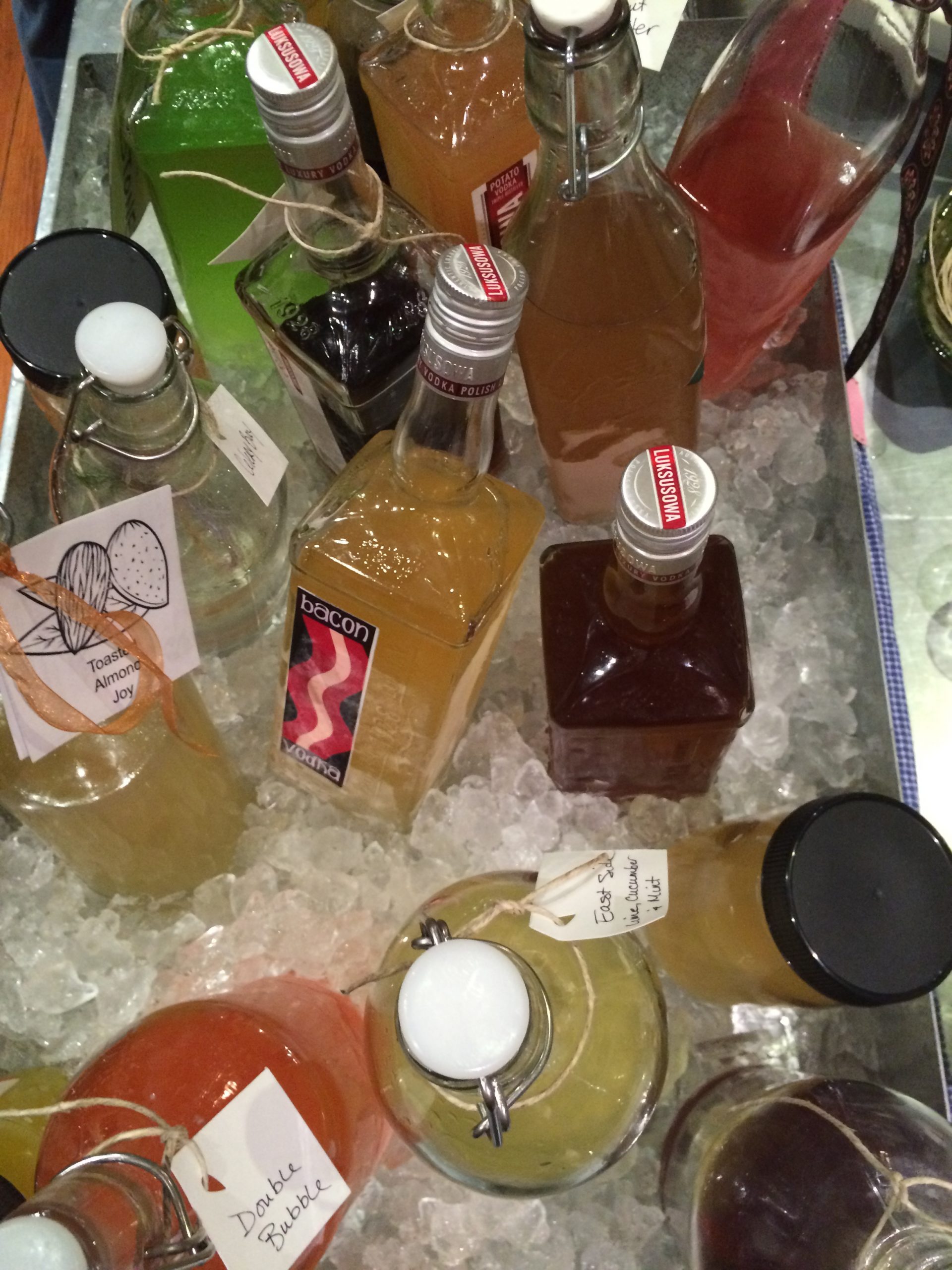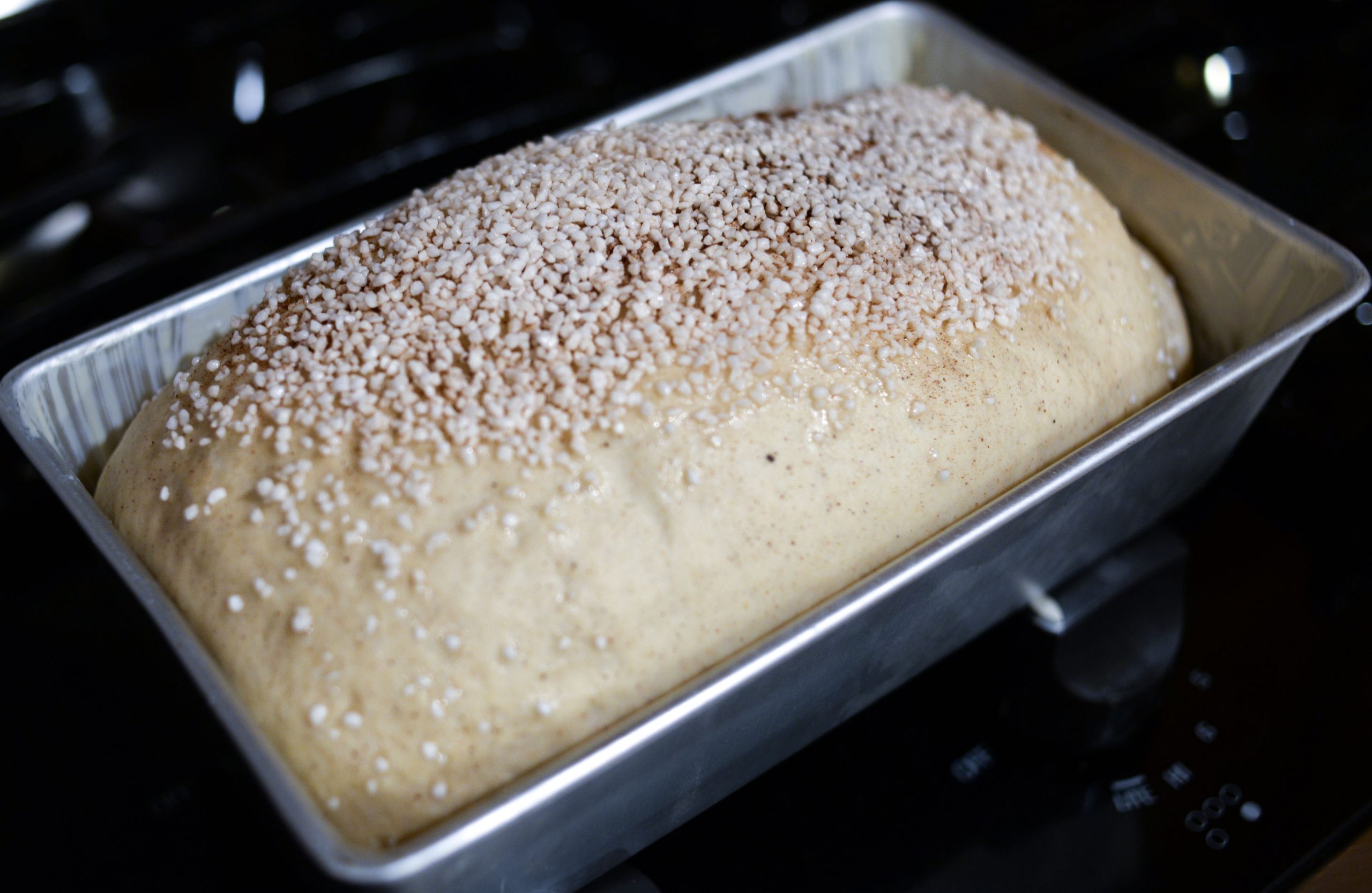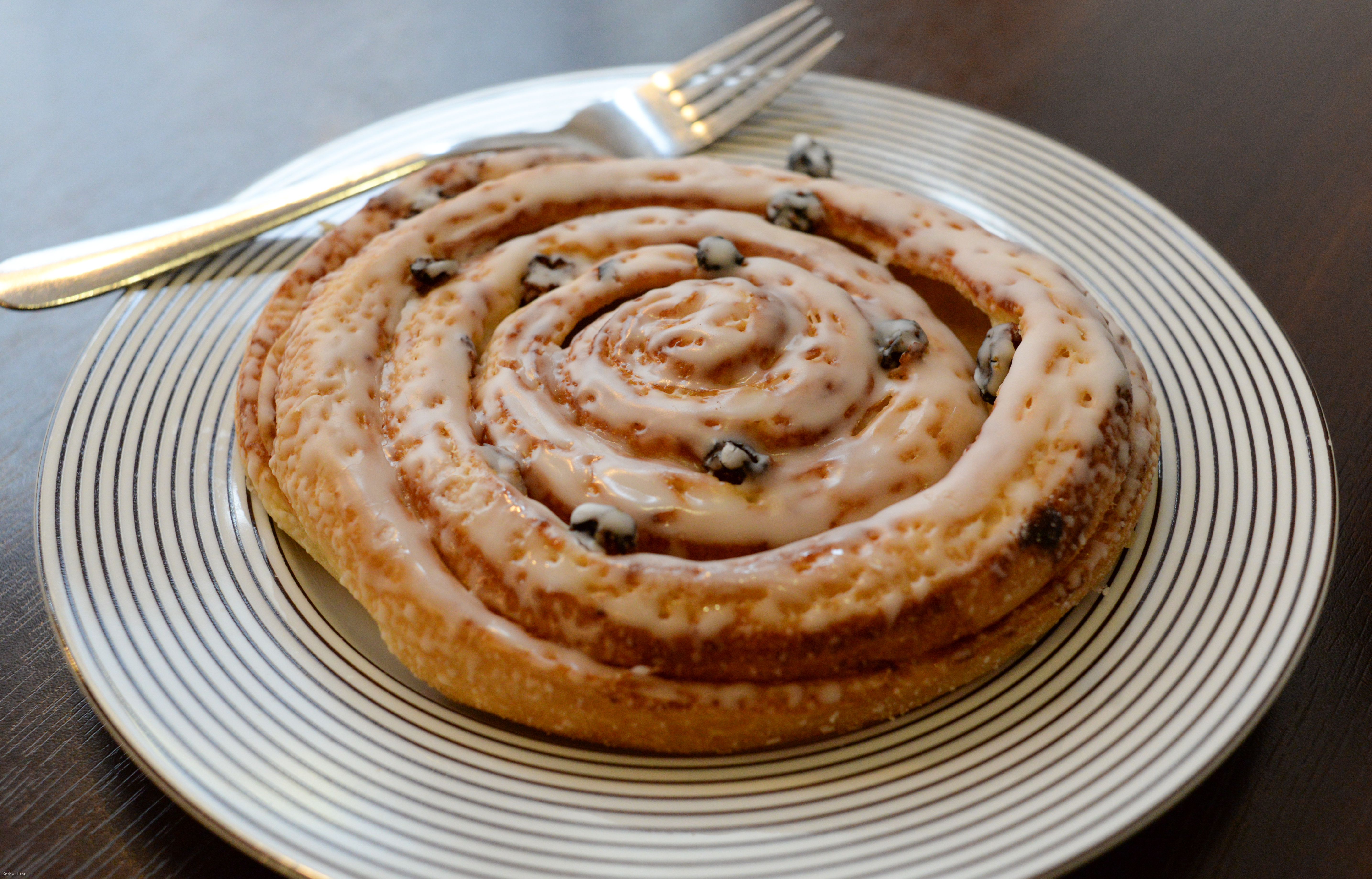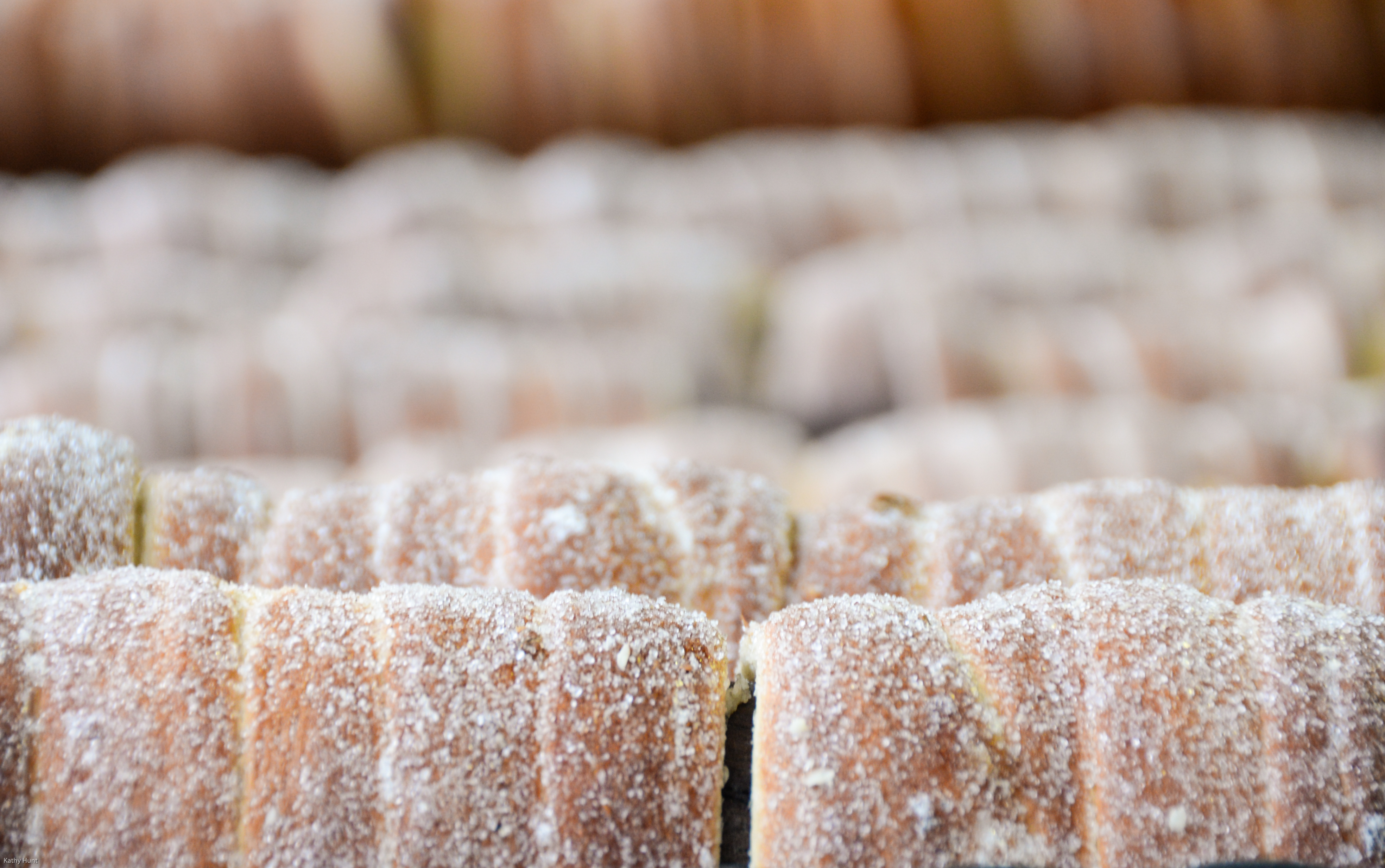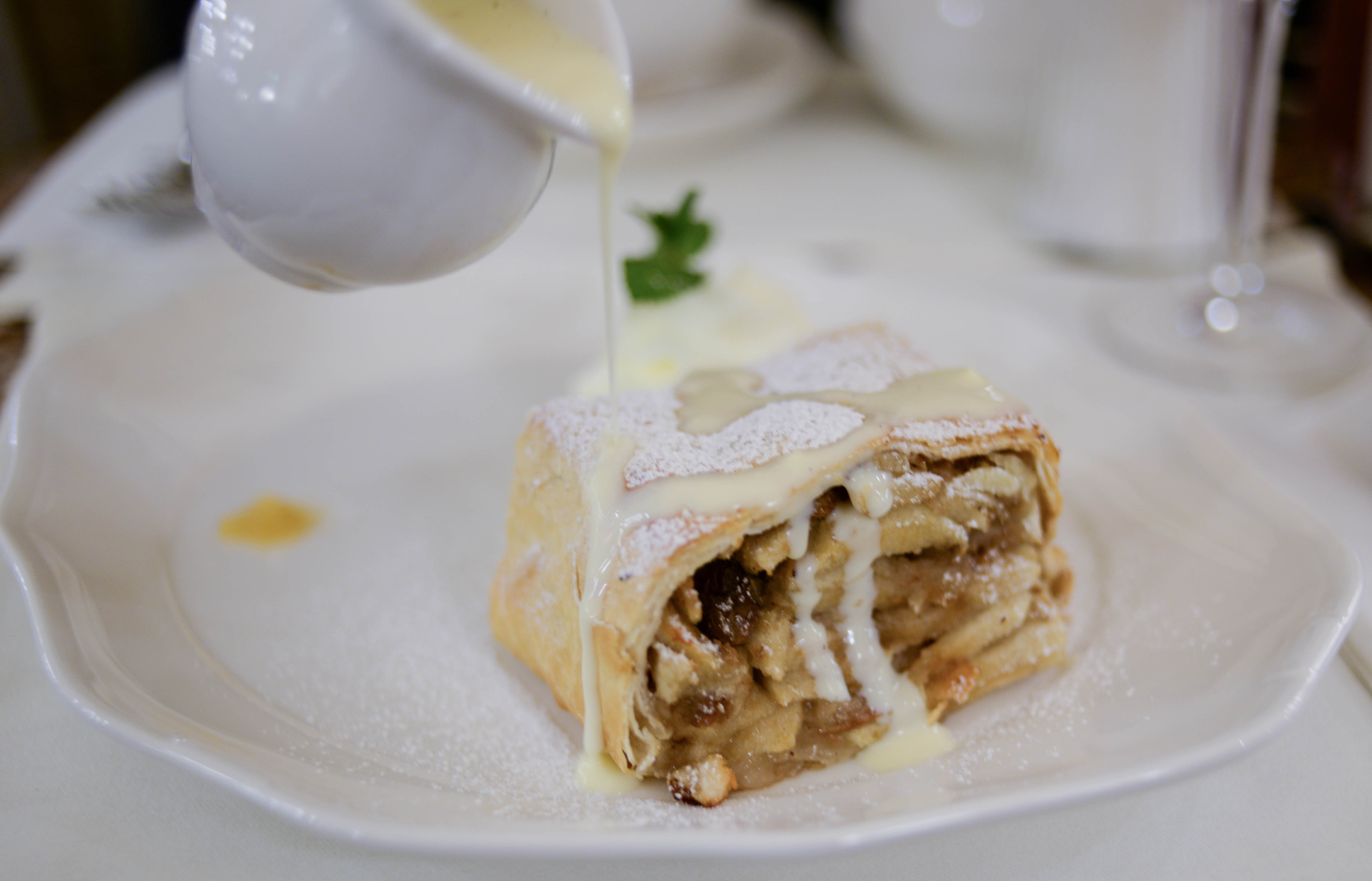Toasted Almond Aquavit
It has become a beloved, albeit unusual, Easter tradition. For the past few years on Easter eve my husband and I have gathered together with friends to nosh on such Scandinavian specialities as gravlax, pickled herring, rye crisps and pickled beets and sample each other’s take on infused vodka or, as we like to call our creations, homemade aquavit. In the past I’ve made sweet concoctions such as raspberry and apple pie aquavits. This time around I decided to take a savory approach and steep bouquets garnis of chopped sun-dried tomatoes, marjoram and crushed red peppercorns. I assumed that the resulting liquor would go well in Bloody Marys or on its own as a Mediterranean-inspired libation. Unfortunately, my pairing resulted in a decent drain cleaner but an atrocious smelling and tasting drink. Luckily, we had a Plan B and Plan C in place. A few weekends before the fete my husband drove to our old neighbors Frank and Jane’s farm and dug up some roots from a sassafras tree. Ever hear of sassafras? It’s the …
